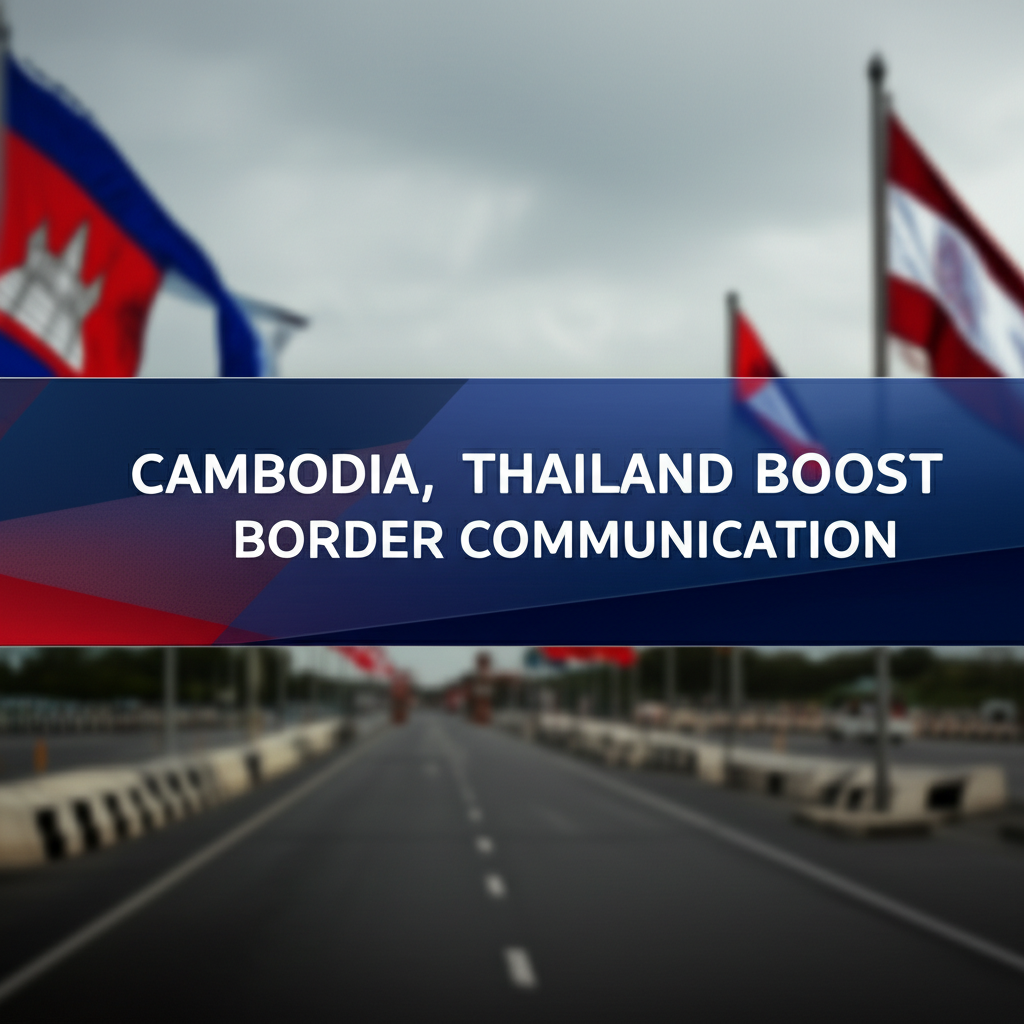Cambodia, Thailand Boost Border Communication

The recent extraordinary meeting of the Cambodia-Thailand Regional Border Committee RBC underscores the growing importance of proactive communication and collaboration in managing the 817-kilometer shared border between the two Southeast Asian nationsBackgroundHeld on August 24th, 2025, in Siem Reap, Cambodia, the meeting highlighted the critical need for regular, transparent, and multi-level dialogue between military units stationed along the borderThis renewed emphasis on communication directly reflects the core principles enshrined within the overarching General Border Committee GBC agreement, a testament to both countries' enduring commitment to peaceful conflict resolution and regional stabilityThe choice to convene an extraordinary meeting, as opposed to a regularly scheduled session, speaks volumes about the perceived urgency and significance of addressing potential border issues While specific details regarding the immediate impetus for this meeting remain undisclosed by the Khmer Times, sources suggest it followed a series of minor incidents involving alleged illegal logging and unauthorized border crossings These events, while individually insignificant, highlighted the vulnerability of relying solely on established, but sometimes slow, communication channels This proactive step demonstrates a mature understanding of the importance of preventative diplomacy in maintaining regional stability and preventing escalation The Cambodia-Thailand border region, while largely peaceful, is not without its complexities Historical disputes stemming from unresolved land boundary demarcation issues, coupled with the persistent threat of cross-border crime, including drug trafficking and human smuggling, necessitate ongoing cooperation and dialogueFurthermore, the intricate interplay of local communities, economic activities such as cross-border trade estimated at $10 billion annually and resource extraction, and shared environmental concerns related to deforestation and water management, adds another layer of intricacy to border managementClear, consistent, and reliable communication channels are therefore vital to prevent misunderstandings that could escalate into more serious disputes, potentially impacting regional economic activity and securityThe meeting's emphasis on military-to-military communication is particularly crucial Given the potential for accidental clashes or misinterpretations in border areas, especially involving patrols operating in challenging terrain, direct, clear, and secure lines of communication between military units are paramountThis approach minimizes the risk of escalation, allowing for swift and coordinated responses to any incidentsSpecifically, the discussion centered on establishing a 24/7 hotline between command centers and agreed-upon protocols for joint investigations of reported incidentsThis aims to prevent potentially volatile situations from developing into larger conflicts through rapid information sharing and collaborative decision-makingThis initiative resonates with broader regional efforts toward enhancing security and stability within Southeast Asia.
The Association of Southeast Asian Nations ASEAN actively promotes peaceful conflict resolution, regional cooperation, and adherence to the ASEAN CharterCambodia and Thailand's commitment to strengthening border communication aligns perfectly with this regional agenda, serving as a positive example of bilateral cooperation within the larger ASEAN frameworkThis collaborative approach can be seen as a model for other ASEAN member states facing similar border management challengesMoving forward, the success of this strengthened communication strategy hinges on several key factors The consistency and regularity of these communication channels are crucialThe agreement reportedly includes provisions for quarterly meetings between regional commanders, increased frequency of joint patrols in sensitive areas, and the formal establishment of a dedicated communication hotline, staffed by bilingual personnel, between relevant military unitsTransparency in information sharing, from both sides, is also paramountTrust-building measures, including joint military exercises focused on disaster relief and cross-border crime prevention, could also contribute significantly to enhancing overall border security and cooperationThe exchange of personnel for training and familiarization visits is also under considerationIn conclusion, the extraordinary RBC meeting serves as a strong signal of intent by both Cambodia and Thailand.
By prioritizing clear and consistent communication between their respective military regions, they are demonstrating a proactive commitment to peaceful border management and stabilityThis action not only contributes to improved bilateral relations but also strengthens the broader regional security architecture within Southeast AsiaIt sets a positive precedent for other neighboring countries facing similar challenges in managing their shared bordersFurther details regarding the specifics of the meeting's agenda, including the financial commitments to support the enhanced communication infrastructure, and the agreed-upon protocols for incident management, would provide a more comprehensive understanding of this significant developmentContinued monitoring of the implementation of this enhanced communication strategy, including regular assessments of its effectiveness in preventing border incidents and fostering trust, will be crucial in assessing its long-term impact on maintaining peace and stability along the Cambodia-Thailand border
